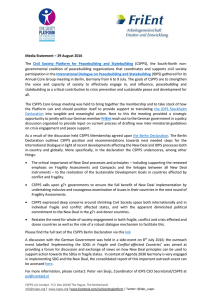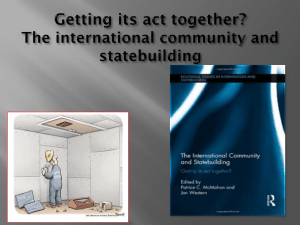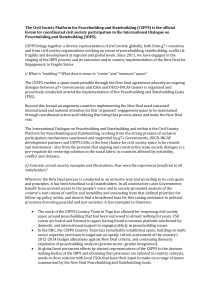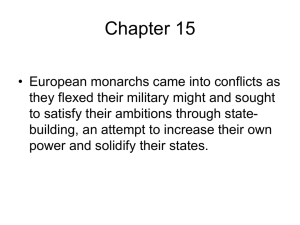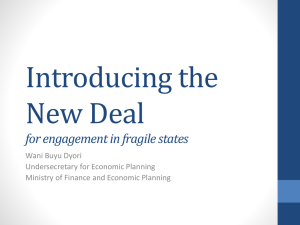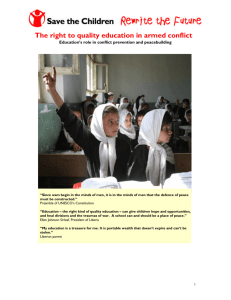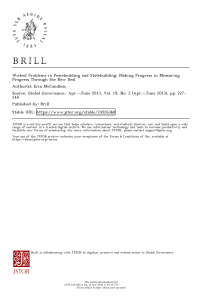KEY DEVELOPMENTS ON THE CONFLICT & FRAGILITY AGENDA: 2008-2011
advertisement
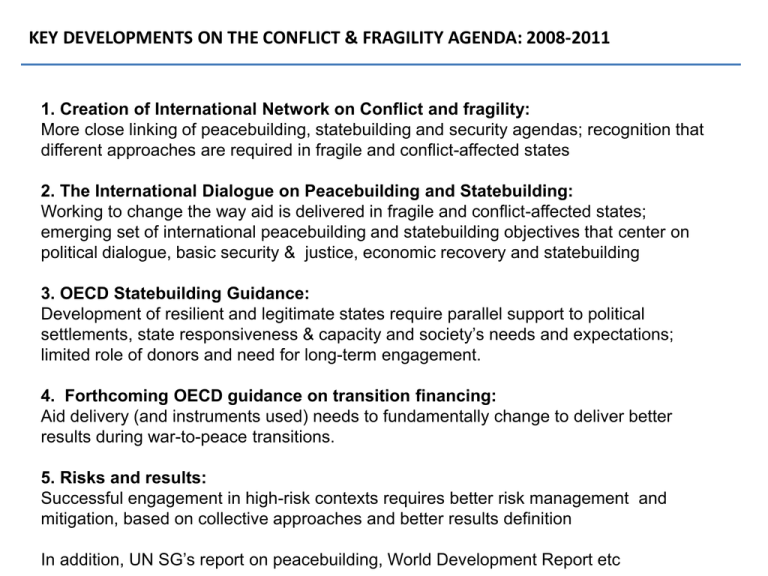
KEY DEVELOPMENTS ON THE CONFLICT & FRAGILITY AGENDA: 2008-2011 1. Creation of International Network on Conflict and fragility: More close linking of peacebuilding, statebuilding and security agendas; recognition that different approaches are required in fragile and conflict-affected states 2. The International Dialogue on Peacebuilding and Statebuilding: Working to change the way aid is delivered in fragile and conflict-affected states; emerging set of international peacebuilding and statebuilding objectives that center on political dialogue, basic security & justice, economic recovery and statebuilding 3. OECD Statebuilding Guidance: Development of resilient and legitimate states require parallel support to political settlements, state responsiveness & capacity and society’s needs and expectations; limited role of donors and need for long-term engagement. 4. Forthcoming OECD guidance on transition financing: Aid delivery (and instruments used) needs to fundamentally change to deliver better results during war-to-peace transitions. 5. Risks and results: Successful engagement in high-risk contexts requires better risk management and mitigation, based on collective approaches and better results definition In addition, UN SG’s report on peacebuilding, World Development Report etc THE CONFLICT & FRAGILITY AGENDA: LOOKING AHEAD INTERNATIONAL DIALOGUE Armed violence reduction Transition financing Statebuilding guidance INCAF work Working group meetings Nov-Dec 2010 Dili declaration 2010 High level meeting Accra 2008 Fragile states principles adopted 2007 Fragile states principles developed 2005 Working group meetings April-May 2011 Fragile states principles survey 2009 Monrovia ministerial 2011 High Level Meeting Busan (end2011) Fragile states principles survey 2011 FRAGILE STATES PRINCIPLES SURVEY SOME CONCLUSIONS AND IMPLICATIONS 1. Traditional approaches not delivering in fragile and conflict-affected states Traditional approaches to aid delivery and effectiveness to complex in situations of conflict and fragility. Different approaches needed – flexibility, speed, risk tolerance 2. More clarity on goals and priorities MDGs not sufficient in conflict and fragility. Complimentary peacebuilding and statebuilding goals being developed –provide narrative for donor engagement/evaluations 3. Fragile states principles guide donor engagement FSP provide design parameters that donors have agreed to use to shape their engagements. Monitoring survey provides evidence on use; can serve as baseline for evaluations 4. Peacebuilding and statebuilding highly complementary Peacebuilding and statebuilding challenges, objectives and activities are largely identical. CPPB evaluations need to consider SB engagement and implications for programming
